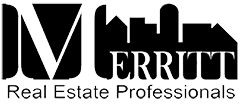Homeowners Insurance
For most people their home is their largest asset. Not only is it a great idea to make sure you have the appropriate coverages for your new home, but, if you are financing your new home the lender will require that you secure homeowners insurance. You will need to have a home insurance quote in order to proceed with financing of your new home. This step can be done before or after you place an offer on the home. One of the most important parts of choosing home insurance is to work with an agent that will get to know and understand your situation and needs. Not all insurance is the same and having someone to explain the coverages and how the policies will respond is very important.
Things to consider when purchasing homeowners insurance
- Using a trusted insurance professional is key. If you currently do not have an agent, you should ask your realtor for a referral or call around to local agencies to obtain a quote.
- Before soliciting a home insurance quote, have the following property information ready to give to the agent that will be quoting.
- Roof year and material.
- Heating type and year the furnace was replaced.
- Electrical service type and year the service was updated.
- Plumbing material and year the service was updated
- Take the time to meet with the agent(s) that is providing the quote. This gives you the opportunity to learn more about the coverages and ask any questions you may have.
- Consider combining your home and auto insurance policies with the same agent/company. Many insurance companies give discounts if you insure your home and automobile(s) with them.
- Ask about payment method discounts. Many companies will give a discount if you choose to pay the premium in full for the year rather than on a monthly basis. If you are escrowing your property taxes and insurance, you cannot choose a different payment method. Confirm with your lender if escrows are required or optional.
- Consider what deductible you are comfortable with. Most all policies have a deductible associated with them. This is the cost of the claim that you as the insured will pay. The lower the deductible the higher the annual cost. You are able to lower your annual cost by increasing your deductible. Be sure you do not make the deductible too high that you cannot satisfy it should a loss occur. Additionally, watch out for a “percentage” deductible. This will be a percentage of your dwelling value and will likely increase every year.
- Make sure you discuss unique items on the property you are purchasing. Is there a pole barn, swimming pool, hot tub, does the property include farm ground, etc. all of these items may warrant additional coverage to ensure proper protection.
- Ask about exclusions in the policy. Most homeowners insurance policies do not provide coverage for losses caused by Water Backup, Flood, Service Line, Earthquake, etc. Some of the items that are excluded are able to be added back on for an additional cost.
- Confirm the policy you are considering is being offered on a 12-month term and coverage will be with an A or A+ rated company.
- Be sure to disclose important information such as if you own a dog, have a trampoline, have recreational vehicle such as a golf cart or ATV.
What to expect after you decide on your insurance:
- Once you choose the company / policy that you are going with, your agent should send the bank a copy of the quote. The bank will need this to complete their underwriting for your loan
- Once the bank has a set closing date, the agent will need to send an Evidence of Insurance along with an invoice for the first year premium. Most all banks require that the home insurance is paid in full for the year at the time of closing.
- On the date of closing, make plans to meet with your insurance agent too. You will need to complete the application for the homeowner insurance coverage.

